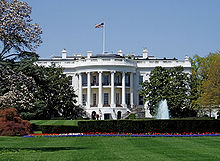Obama Administration Bans Knowledge of Islam
 The Obama administration’s censoring of photographs of the late Osama bin Laden, lest they offend Muslims, is one thing; but what about censoring words, especially those pivotal to U.S. security?
The Obama administration’s censoring of photographs of the late Osama bin Laden, lest they offend Muslims, is one thing; but what about censoring words, especially those pivotal to U.S. security?
The Daily Caller reveals that “the Obama administration has been pulling back all training materials used for the law enforcement and national security communities, in order to eliminate all references to Islam that some Muslim groups have claimed are offensive.”
The move comes after complaints from advocacy organizations including the Council on American Islamic Relations (CAIR) and others identified as Muslim Brotherhood front groups in the 2004 Holy Land Foundation terror fundraising trial. In a Wednesday Los Angeles Times op-ed, Muslim Public Affairs Council (MPAC) president Salam al-Marayati threatened the FBI with a total cutoff of cooperation between American Muslims and law enforcement if the agency failed to revise its law enforcement training materials. Maintaining the training materials in their current state “will undermine the relationship between law enforcement and the Muslim American community,” al-Marayati wrote. Multiple online sources detail MPAC’s close alignment with CAIR. In his op-ed, Al-Marayati demanded that the Justice Department and the FBI “issue a clear and unequivocal apology to the Muslim American community” and “establish a thorough and transparent vetting process in selecting its trainers and materials.”
Accordingly, after discussing the matter with Attorney General Eric Holder, Dwight C. Holton said “I want to be perfectly clear about this: training materials that portray Islam as a religion of violence or with a tendency towards violence are wrong, they are offensive, and they are contrary to everything that this president, this attorney general and Department of Justice stands for. They will not be tolerated.”
Even before these Muslim complaints and threats, President Obama alluded to censoring words when he said soon after taking office: “Words matter … because one of the ways we’re going to win this struggle [“war on terror”] is through the battle of [Muslims’] hearts and minds” (followed by things like commissioning NASA to make Muslims “feel good” about themselves).
As if there were not already a lamentable lack of study concerning Muslim law war doctrine in the curriculum of American military studies—including in the Pentagon and U.S. Army War College—the administration’s more aggressive censorship program will only exacerbate matters. Last year’s Quarterly Defense Report [QDR], a strategic document, does not mention anything remotely related to Islam—even as it stresses climate change, which it sees as an “accelerant of instability and conflict” around the world.
This attempt to whitewash Islam goes back to a 2008 government memo that not only warned against “offending,” “insulting,” or being “confrontational” to Muslims, but tried to justify such censorship as follows:
Never use the terms “jihadist” or “mujahideen” in conversation to describe the terrorists. A mujahed, a holy warrior, is a positive characterization in the context of a just war. In Arabic, jihad means “striving in the path of God” and is used in many contexts beyond warfare. Calling our enemies jihadis and their movement a global jihad unintentionally legitimizes their actions [emphasis added].
Aside from the fact that the above definitions are highly misleading, the notion that the words we use can ever have an impact on what is and is not legitimate for Muslims is beyond incompetant: Muslims are not waiting around for Americans or their government—that is, the misguided, the deluded, in a word, the infidel—to define Islam for them. For Muslims, only Sharia law determines right and wrong: whatever falls inside Sharia law is right; whatever falls outside Sharia law is wrong.
The U.S. government needs to worry less about which words appease Muslims and worry more about providing its intelligence community—not to mention its own citizenry—with accurate knowledge concerning the nature of the threat.
Without words related to Islam, how are analysts to make sense of the current conflict? What are the goals and motivations of the jihadists? What are their methods? Who might be “radicalizing” them? With whom are they affiliated? Who supports them? These and a host of other questions are unintelligible without free use of words related to Islam.
Knowledge is linked to language: the more precise the language, the more precise the knowledge. In the current conflict, to acquire accurate knowledge, which is essential to victory, we need to begin with accurate language.
This means U.S. intelligence analysts and policymakers need to be able to use, and fully appreciate the significance of, words related to Islam—starting with the word “Islam” itself: Submission—to a worldview based on Sharia law, a set of assumptions and imperatives thoroughly different from those in Western common law. Whatever falls inside Sharia law is right – including unequal justice under law; religious and gender inequality under law; criminalization of lifestyle choices as well as freedom of religion and speech – and whatever falls outside Sharia law is wrong.
It means the U.S. military needs to begin expounding and studying Islamic law and war doctrine—without fear of reprisal, such as when counter-terrorism strategist Stephen Coughlin was fired by the Pentagon for focusing on Islamic doctrine and therefore being politically incorrect. It means America’s leadership needs to take that ancient dictum—”Know thy enemy”—seriously.
(© 2011 Raymond Ibrahim — original url: http://www.meforum.org/3116/obama-administration-bans-islam-knowledge)

